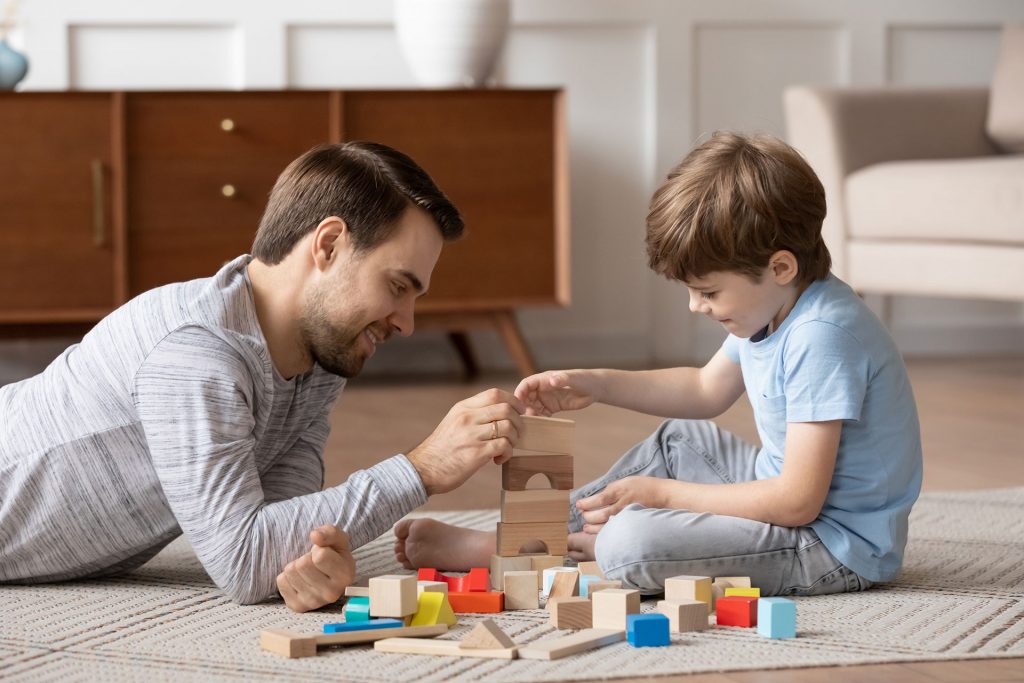Equal Parenting is Best for the Kids
 There are far too many parents that do not want to be involved in their children’s lives after divorce. So, it is tough to imagine why anyone under normal circumstances would fight to keep the kids mother or father out of their lives because of their personal differences. Many people still see the system skewed towards mothers and that is simply not fair in the eyes of many dads. This is where father’s rights advocates have taken up the fight, both for dads and the positive impact they have on their children.
There are far too many parents that do not want to be involved in their children’s lives after divorce. So, it is tough to imagine why anyone under normal circumstances would fight to keep the kids mother or father out of their lives because of their personal differences. Many people still see the system skewed towards mothers and that is simply not fair in the eyes of many dads. This is where father’s rights advocates have taken up the fight, both for dads and the positive impact they have on their children.
One common phrase we often hear is “the kids need their mother.” This is something that has been drummed into our society’s way of being for many years. But, what about dad? Fathers play a very significant role in children’s lives and without that “fatherly” influence, they stand less of a chance of being prepared for the “real” world.
Just as mothers provide qualities fathers are not capable of, fathers provide qualities mothers are incapable of providing. This is not meant to be a criticism of single mothers or fathers raising their children, as they are doing the best they can. However, the reality is that children need both their mother and their father in their life.
Visitation or Shared Custody?
When we “traditionally” think of divorce and custody agreements, popular belief is that the mother will win full custody and dad will get one weeknight dinner and every other weekend. One would have to ask, just how much of an influence can dad have when he is more of a “buddy” hanging out with the kids on the weekend rather than being involved in everyday parenting decisions?
The irony is that this very situation is what mother’s often complain about when it comes to the father actually parenting the children. The dad shows up on his weekend and he is the “good time” dad because he wants the kids to enjoy the limited time they are sharing together. Maybe he overlooks a few things here and there simply because he does not want to upset the children out of fear that his time with them will become even more limited than it already is.
If the father actually shared custody with the mother, he would be around more and would naturally be more involved in the everyday parenting decisions being made. The need to be their “friend” instead of their father is alleviated because he is seeing them more and is not frightened to lose parenting time by disciplining them. So, you have to ask, why are so many mothers so willing to fight for full custody instead of some type of shared custody plan that would seemingly benefit everyone, most notably the children?
The Importance of Shared Custody and Equal Parenting
As you might expect, numerous studies have been conducted on this topic. These studies have shown that shared parenting households are a much better setting for children. Just how much better? Below are the highlights of some of the studies that have been conducted over the last 20-30 years:
- Almost half of all child abuse cases are in the homes of single mothers
- In homes where the father is absent, adolescents are more likely to experience abuse of alcohol and/or marijuana
- Over 25% of abuse cases happened in homes where there was either a boyfriend or stepfather in the home of a divorced or single mother (where the natural father was not the boyfriend or active in the children’s life)
- Over two-thirds of child abuse cases happened in homes where both biological parents were not in the home
- In “teen” homes, these children were more likely to have psychological disorders as well as committing suicide
- White adolescent males showed a higher tendency of suicide in single-mother households
- 80% of children admitted to a local hospital over an almost 3-year period were from homes where the father played no role in the children’s lives
- Divorce rates in states with higher sole custody awards were much higher than states having a higher rate of joint custody awards in divorce. The states with higher joint custody awards continued to show a decrease in divorce rates.
*Please note, the statistics mentioned above are specific to a sample study taken.
How to Make Joint Custody Work with Your Ex-Spouse
Ideally, both parents can put everything behind them and put the welfare of the children first. However, being human, this is not always possible, especially in the early days after the divorce. It is quite easy to get vindictive or hold a grudge, so we have put together some tips to help make this transition easier and make sure that once you get joint custody, you are able to make it work.
- The Kids Come First – in other words, it is not about you, your ex, or your previous relationship; it is about the kids and the kids alone. You may have to change some things about your lifestyle and you will probably have to make some concessions, but this is necessary (for both of you) to ensure this arrangement works
- Avoid Negativity and Arguments – the easiest way to throw a wrench into a custody agreement is to start an argument every time the kids are exchanged or to make negative comments about your ex in front of the children or friends that can relay the message. There are so many bad things that can happen as a result of this, we would need a book to list them. Save your venting for when you are alone and never put the children in a position where they feel uncomfortable or are forced to take sides
- Be Cooperative – this means give and take on both sides. When the arrangement is made, be realistic about your schedule and that of your ex. Do not insist on a specific day because you know there is no way your ex can make it work. Work through scheduling issues so both parents can maximize time with the children as well as being involved in all parental decisions
- Don’t Hold Grudges – there is a reason that you and your ex split, but that does not make him or her a bad parent. Don’t hold what happened personally in your relationship against the person, especially if it is going to interfere with your custody scheduling
- Open Communication Lines – what can you do when you literally cannot stand being in the same room as your ex? There are online services available, such as OurFamilyWizard.com, where you can create schedules, update events, and leave messages. Just one bit of caution when using the written word to communicate, sometimes words are read in a manner in which they were not intended. For instance, friendly sarcasm may come across as an aggressive attack. Keep the communication short and to the point to avoid any problems
- Be Open to Adjustments – our lives and schedules change from time to time and both of you can make it easier on each other by setting up a schedule review on a steady basis. If things are not working schedule-wise, make changes so it does work. Make it a point to set a review date of the current agreement so the two of you can adjust the schedule if any changes arise.




